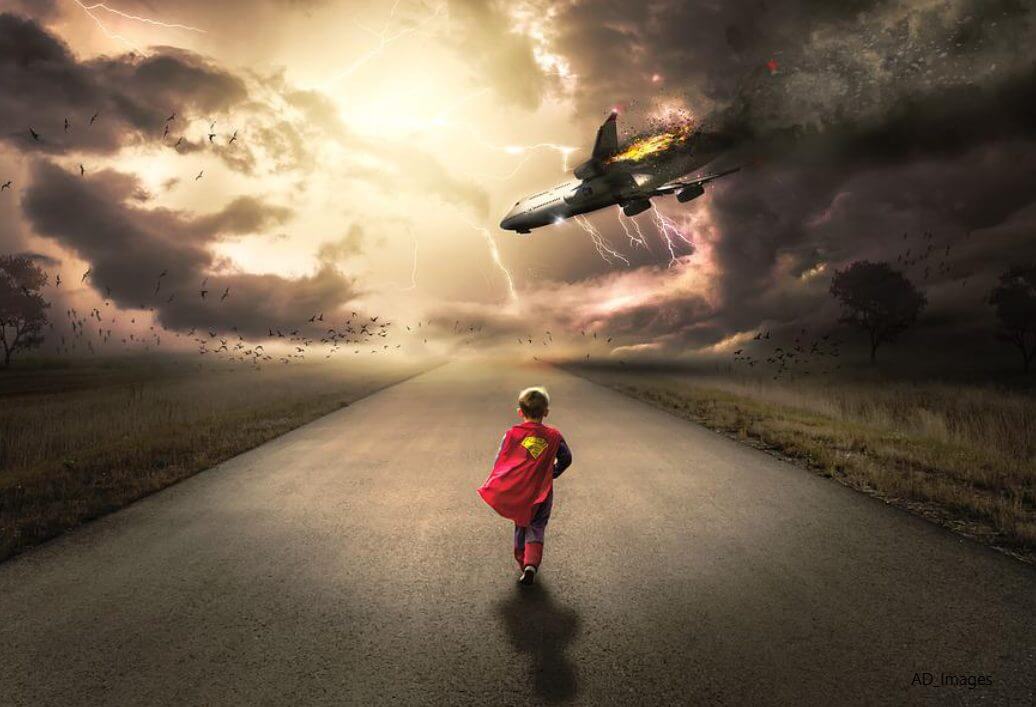
In times of darkness and great opposition, the “hero” is the personification of the light answering the call to neutralize the dark, thus, restoring cosmic balance. The notion of the hero offers inspiration, not only with their words, but more crucially, with their actions.
From the current explosion of interest in the Marvel and DC universes, to the rise in manga and TV superhero reboots; it’s clear the mythic hero story is very much part of our collective narrative at the moment. It makes sense if we think about the contemporary times we are living in, and the unprecedented challenges which many of us are facing. Ultimately the hero provides a template of hope and the possibility for something new to happen. Many of us resonate deeply with this notion, and we love tales about characters we can actually relate to; meaning they are not all shinny and perfect, but have good intentions in their hearts, and when they get knocked down, and get it wrong, they get up, and choose to try to do better.
The Hero with a Thousand Faces, Joseph Campbell
When he died in 1987, Newsweek magazine noted that “(Joseph)Campbell has become one of the rarest of intellectuals in American life: a serious thinker who has been embraced by the popular culture”. Campbell’s work outlined some of the core universal elements of heroism and the mythological structure of the journey of the archetypal hero in his significant book, The Hero With a Thousand Faces. Campbell’s notion of the hero’s journey is a dynamic, challenging, transformative and of course, a mythic one.
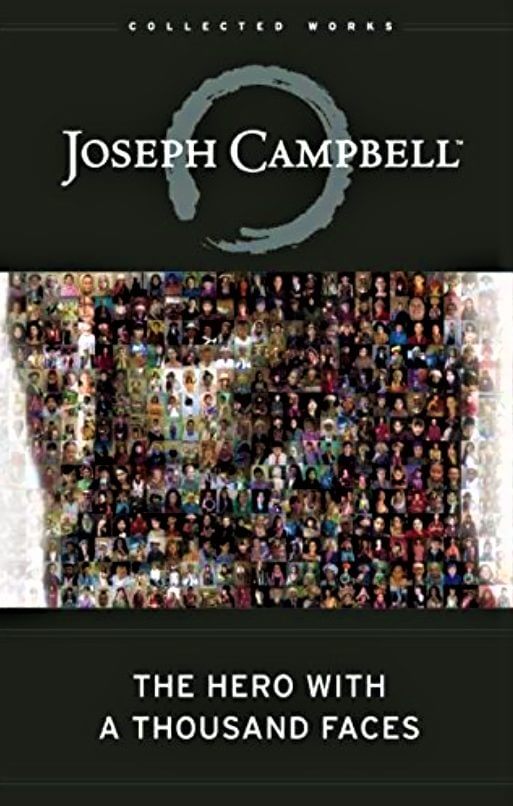
Since its release in 1949, The Hero with a Thousand Faces has influenced not only millions of readers, but also many aspiring writers. By combining the insights of modern psychology and a revolutionary understanding of comparative mythology, writers were given an avenue for how to construct and relate a fictional hero story. Campbell outlines a motif of transformation and adventure (Departure, Initiation, and Return) which shows up across-the-board through much of our world’s mythic traditions and customs.
Departure
The hero is suddenly faced with unexpected challenges that have potentially life-changing implications. It is not unusual for the hero to be in denial of the situation, and they can be quite distressed trying to grapple with their new and unexpected circumstances. Very often they seek out support from an older or wiser person when this happens, and with the help and advice offered to them, the hero decides to accept the challenge and sets out to overcome the hurdle.
Initiation
The hero faces a series of tests, trials, and obstacles to overcome. They may be resistant at first, as quite often they are stunned and in shock that this obstacle has come their way. At this stage the hero at is guilty not of hubris, but of too much humility; believing they are not important enough for this challenge or task.
They may be successful at some tests, but many heroes fail their initial attempts to overcome the obstacles in front of them, often making their situation direr, and causing them to seek out more supports. In the process of facing numerous challenges stacked against them, the hero may be tempted to abandon the quest all together, but ultimately, there comes a shift in perception which creates space for transformation to occur.
The hero lets go of notions of themselves which no longer serve them; this self-realization process is often referred to as “doing shadow work” or “entering the death-rebirth cycle”. This deep inner work allows the hero to confront and overcome the stumbling blocks of their past, embrace their higher aspects, thus creating a more authentic version of themselves which is up to the ultimate challenge. With a newly solidified foundation and deep resolve, this higher-self hero emerges, steps up to the plate, and finds they are able to not only embrace the opposition in front of them, but obliterate it all together.
Return
A hero is not about destruction for the sake of destroying; their task is to bring about the end of something rotten, in order to for new life to bloom. As such, the final roadblock the hero faces is the duty of creating a new life integrating the different aspects of their selves in the wake of what they have endured and accomplished, and to share that abundance with the the world. It’s not uncommon for the hero to once again seek support of a mentor to achieve this new sense of equilibrium and normalcy.
Part of this new life involves sharing the wisdoms and insights they gained from their experiences of confronting many challenges, as well as recognizing that they have, in a way, mastered the old world and have now set themselves free to exist and thrive in the new world of their making.
Where the Forest Meets the Stars, Glendy Vanderah
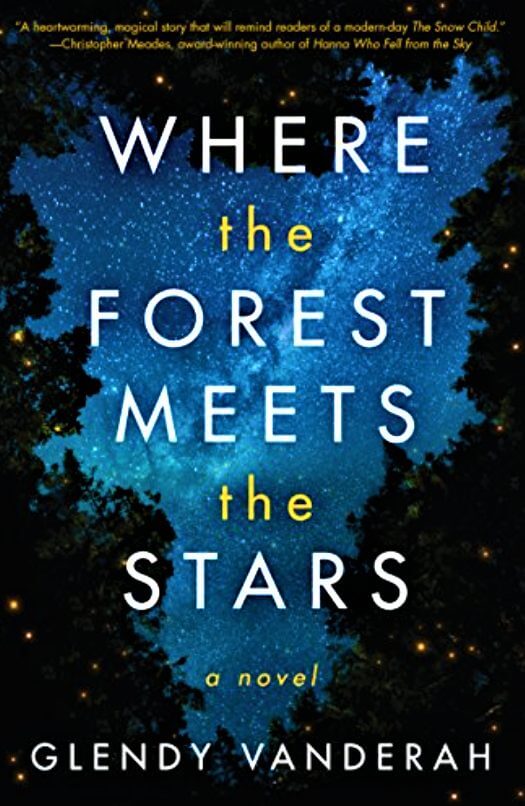
After the tragic loss of her mother, and her own struggles with breast cancer, Joanna Teale moves to a cabin in remote Illinois returning to her graduate studies of nesting birds. Determined to find her groove again and prove to herself that her recent hardships have not in fact broken her, Joanna commits herself to her research. Often working from dusk to dawn, her comforting solitary routine is abruptly interrupted by the sudden appearance of a mysterious little girl who somehow arrives at her cabin shoeless and covered in bruises.
The girl’s name is Ursa, and just like the star constellation sharing the same name, Ursa claims to have been sent from outer space to witness five miracles. With grave concerns about the child’s home situation and mental health, Joanna enlists the help of her reclusive neighbor, Gabriel Nash, to solve the mystery of the charming child and see if Ursa can be helped.
However, Ursa is also there to offer help to Joanna and Gabriel, as this mysterious child is able to teach these two guarded strangers how to be brave enough to open up to love and trust again. The more time the three of them spend together, the more curious Ursa seems. Somehow Ursa not only reads, but is able to understand the complexities of Shakespeare, as well, odd random blessings keep occurring in her presence.
A powerful bond forms between the three of them, however, as the summer comes to a close, they sense that difficult challenges are quickly approaching as Ursa gets closer to her fifth miracle, and her dangerous unknown origins begin to catch up to her.
Quicksilver, Dean Koontz
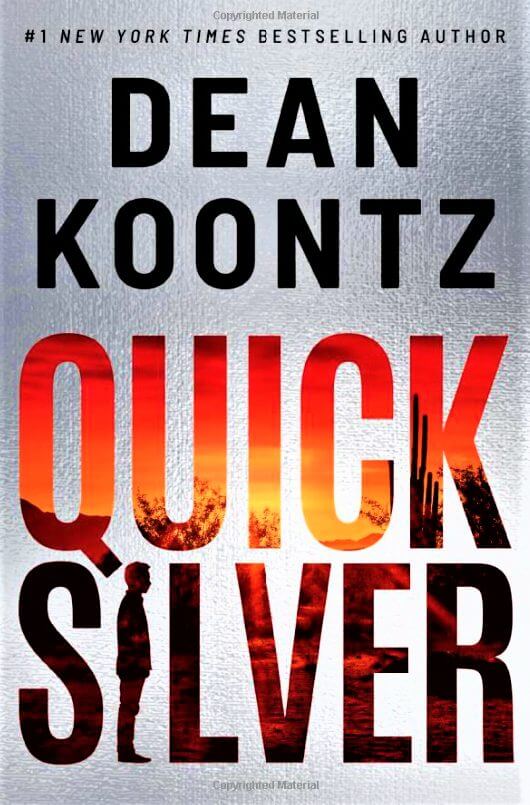
For fans of Koontz, Quicksliver’s main character Quinn Quicksilver is reminiscent of beloved Koontz character Odd Thomas, from the Odd Thomas series and movie adaption. Quinn shares Odd’s unusualness in so much that they are both rather odd ducks and they don’t exactly fall into society’s neat and tidy boxes. Oh and there’s the other thing that makes them stand out… they both have other worldly abilities.
Abandoned on an Arizona desert highway at only three days old and raised in an orphanage never knowing his parents, Quinn’s origins are quite the mystery. Despite that unusual start to life, Quinn, is a happy young man, living a rather content and unexceptional life. That is until the day when a “strange magnetism” starts to come over him, and he feels strongly compelled to drive out to the middle of nowhere, stumbling upon an old rare coin, which he is able to sell for a lot of money. This seemingly random good luck and cash come in handy, as Quinn’s life all at once gets turned around when the very next day two government agents show up to accost him over lunch time at the town’s local diner. Suddenly, Quinn finds himself fleeing from those agents and heading right into a shoot-out at a forlorn dude ranch, where he crosses paths with what seems to be his destined companions.
Bridget Rainking is striking for both her beauty and her gift of foresight, as well as being a hell of a shot with a rifle. Bridget is also on the run from the same government goons with her grandpa Sparky in tow. Sparkly is a romance novelist with an unusual past that stinks of Special Forces and deeply hidden secrets. Bridget can instantly relate to Quinn, as she’s also hunted and haunted for her unusual abilities. The only way for any of them to stay alive and have any hope of figuring out what’s going on, is to join up, follow the “magnetism” and trust they are being lead on a mission of highest importance and goodness.
Hero Least Likely, Jessica Michelinie
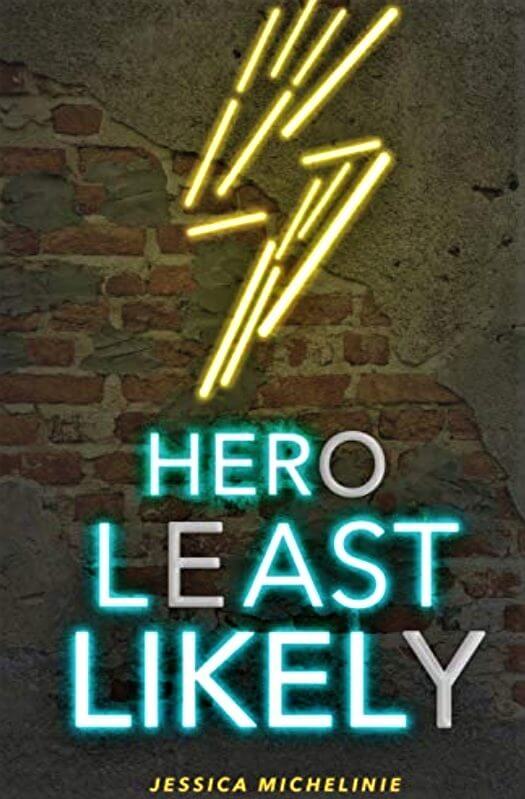
Hero Least Likely is a funny story about the often rough journey of transitioning between ordinary and extraordinary. Jessica Michelinie has written a laugh-out-loud zero to hero tale that’s very relatable.
“I don’t ask for much in life: a raise to pay the rent I’m three months behind on, a date with that irresistibly cute NYPD detective I met last week, and maybe a promotion at my job as sous-chef in South Brooklyn. To be honest, I’m just your average 20-something. Another face in the crowd. My name is Marie Carter, and it may sound like a I lead an ordinary life, but I’m what you might call…a superhero. I deal with everyday woes like subway delays, first dates, and foiling the villainous plans of anyone who might want to bring harm to the people of my city.
But back then, when I had just gotten my powers from an MRI machine malfunction (long story), I thought it would be easy to balance my everyday woes with the responsibilities that came with my brand-new abilities. Throw in a corrupt politician trying to turn New York City into her own personal playground, and I had no idea just how wrong I was…”
The Boys, Garth Ennis and Darick Robertson

The series has six editions, and is set in the mid 2000’s in a world where superheroes exist and are part of the corporate and capitalistic systems of society. If the core mantra for all superheroes is; “with great power comes great responsibility”, then these “supes” did not get the memo. As such, it’s not surprising that most of the superheroes in the series’ universe are corrupted by their celebrity status and often get caught up in narcissist and reckless behavior, which inevitably ends up compromising the safety of the world.
In order to keep every day humans safe from the tantrums of their powered-up leaders, a small clandestine squad of non-powered humans, known as “The Boys” is formed. Led by Billy Butcher, who is a complex, brash and often reactionary character, this group of passionate and intriguing outsiders take up the charge of monitoring the superhero community. This quite often leads to gruesome confrontations, and despite best intentions, the group often ends up creating more disastrous and yet hilarious results when they get involved.
The true heroes in this series are not the characters with the most “power”, but the scrappy underdogs who grew tried of the corruption, greed, and tyranny happening all around them, and no longer capitulated to the illusion they were weak, alone, and just had to take it. Together, they try to do something to help with the gross misconduct and abuse they see in their so called ‘leaders’. This group of misfits come together in an altruistic, empowered, and yet somehow, a sweetly naive way, to form a highly-fuctional dysfunctional group referred to as “The Boys”.
This series is accessibly on many levels, it’s fun, unexpected and entertaining, and yet, it highlights what can happen when the emphasis on gaining power is completely out of balance with any type of emotional intelligence, authenticity, compassion, and the ability to take accountability for ones’ actions. It’s not too hard to see some similarities between this fictional world and our real world at the moment. The Boys is definitely for mature readers, as at times, its illustration of the appalling corruption that comes with absolute power, and the scenes of escalated violence, can be quite blunt. However, its in-your-face style is also caulked full of blush-worthy profanities and fantastic one-liners such as; “Since when did ‘Hopeful’ and ‘Naïve’ become the same thing?” and “Hughie, you’ve done a murder. Comparatively speaking, this will be a piece of cake.”
An avid book reader and proud library card holder, Angela is new to the world of e-Readers. She has a background in education, emergency response, fitness, loves to be in nature, traveling and exploring. With an honours science degree in anthropology, Angela also studied writing after graduation. She has contributed work to The London Free Press, The Gazette, The Londoner, Best Version Media, Lifeliner, and Citymedia.ca.
